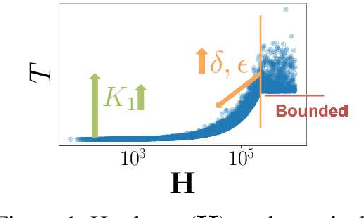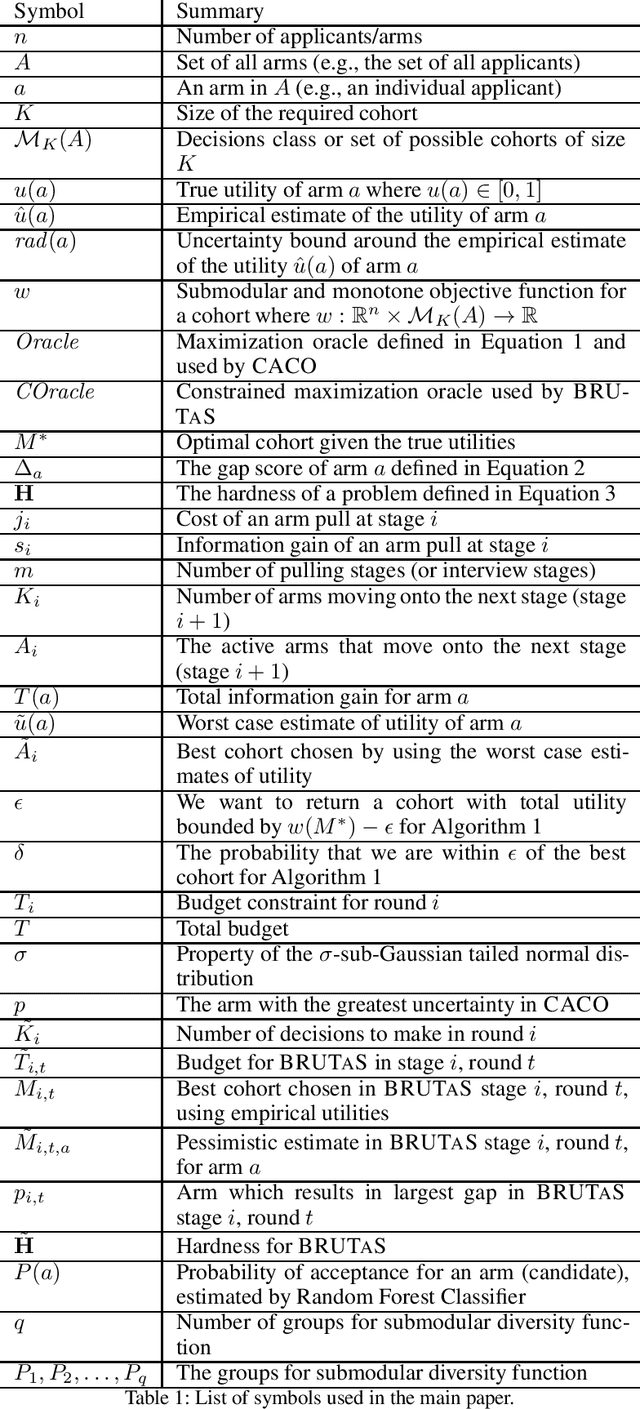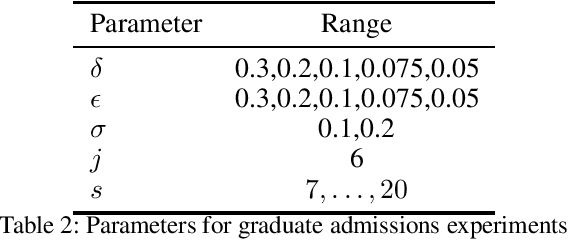Making the Cut: A Bandit-based Approach to Tiered Interviewing
Paper and Code
Jun 23, 2019



Given a huge set of applicants, how should a firm allocate sequential resume screenings, phone interviews, and in-person site visits? In a tiered interview process, later stages (e.g., in-person visits) are more informative, but also more expensive than earlier stages (e.g., resume screenings). Using accepted hiring models and the concept of structured interviews, a best practice in human resources, we cast tiered hiring as a combinatorial pure exploration (CPE) problem in the stochastic multi-armed bandit setting. The goal is to select a subset of arms (in our case, applicants) with some combinatorial structure. We present new algorithms in both the probably approximately correct (PAC) and fixed-budget settings that select a near-optimal cohort with provable guarantees. We show on real data from one of the largest US-based computer science graduate programs that our algorithms make better hiring decisions or use less budget than the status quo.
 Add to Chrome
Add to Chrome Add to Firefox
Add to Firefox Add to Edge
Add to Edge